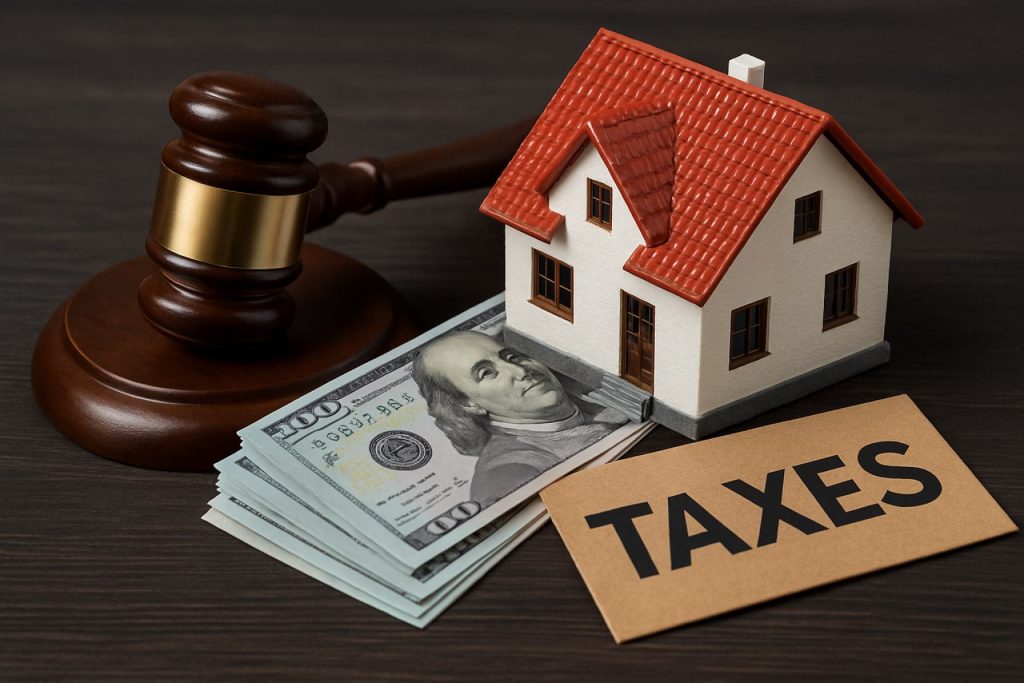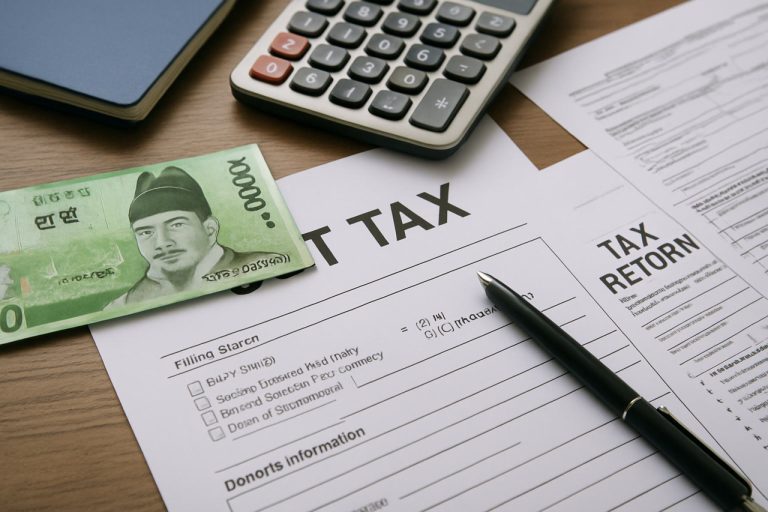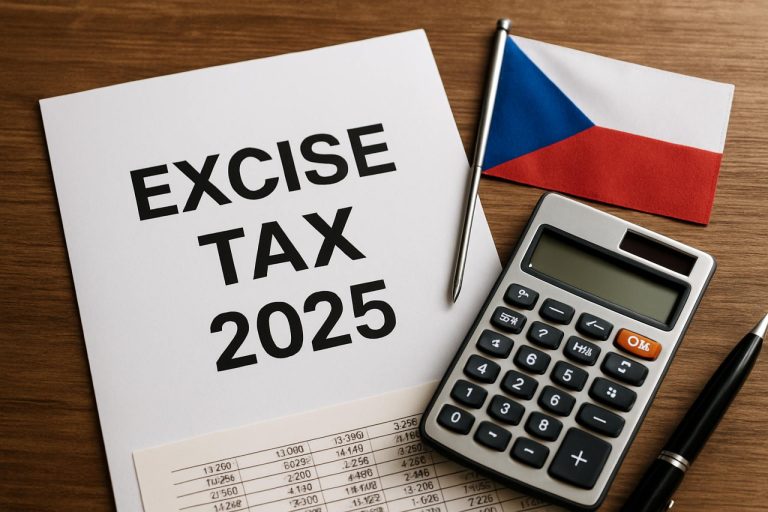
Table of Contents
- Introduction: Understanding Albania’s Real Estate Tax Landscape
- Key Tax Laws Affecting Property Owners in 2025
- Recent Legislative Changes: What’s New for 2025
- Calculating Real Estate Taxes: Methods, Rates, and Examples
- Tax Compliance: Deadlines, Procedures, and Penalties
- Exemptions, Deductions, and Special Tax Regimes
- Impacts on Foreign Investors and Non-Residents
- Statistical Snapshot: Real Estate Tax Revenues and Trends
- Future Outlook: Predicted Changes Through 2029
- Official Resources and How to Stay Informed (Source: finances.gov.al, tatime.gov.al)
- Sources & References
Introduction: Understanding Albania’s Real Estate Tax Landscape
Albania’s real estate tax landscape is evolving as the country positions itself for further integration with European economic standards and seeks to modernize its fiscal policy. Real estate taxes in Albania encompass a range of levies, including property tax, capital gains tax on real estate transactions, and transfer taxes, each governed by specific legislative acts and enforced by national and local authorities. The primary legal framework is set by the Law No.9632, dated 30.10.2006, “On Local Tax System”, as amended, and supplemented by regulations from the General Directorate of Taxes as well as local municipalities.
In 2025, property tax rates continue to be applied based on property type (residential, commercial, industrial, agricultural) and location, reflecting the government’s approach to progressive fiscal measures and urban development. Residential properties in urban areas are taxed at higher rates than those in rural zones, and the valuation methodology for tax purposes is periodically updated to align with market trends. The registration and compliance processes are overseen by the General Directorate of Taxes and local tax offices, with compulsory annual declarations and periodic reassessments.
Key statistics from recent years highlight a steady increase in tax revenue from real estate, attributed both to rising property values and enhanced enforcement. For instance, in 2023, real estate taxes contributed over 15% of all local government revenues, a trend projected to continue as compliance improves through digitalization and stricter oversight (Ministry of Finance and Economy). The transition to electronic property registration and digital tax payments has reduced administrative burdens and increased transparency, further encouraging voluntary compliance.
Recent amendments have focused on aligning Albania’s tax policies with EU directives, enhancing the traceability of property transactions, and preventing tax evasion. Ongoing reforms, such as periodic property revaluations, are expected to impact both taxpayers and municipal budgets in the coming years. Looking forward, the outlook for real estate taxes in Albania involves continued modernization, a gradual increase in tax base and rates in line with economic growth, and further regulatory harmonization with European standards. Property owners, investors, and developers must remain attentive to legislative changes and compliance requirements as the Albanian real estate tax regime becomes more sophisticated and robust.
Key Tax Laws Affecting Property Owners in 2025
Albania’s real estate tax regime is governed primarily by the Law No. 9632, dated 30.10.2006 “On the Local Tax System”, as amended, and is administered both at the central and municipal levels. As of 2025, property owners in Albania are subject to several key taxes, including the annual property tax, capital gains tax, and transfer taxes, each with specific compliance requirements and rates. Recent amendments and enforcement efforts reflect Albania’s ongoing alignment with European standards and its commitment to improving tax collection efficiency.
- Annual Property Tax: In 2025, the annual property tax remains the principal levy affecting real estate owners. The tax base is the cadastral value of the property, which is periodically updated by the government. Tax rates differ for residential and commercial properties, with urban residential properties typically taxed at a rate of 0.05% of the cadastral value, while commercial properties can be subject to rates up to 0.2%. Municipalities are authorized to adjust rates within limits set by national legislation. Obligations for timely declaration and payment rest with the property owner, and non-compliance may lead to penalties and interest charges. Detailed information on current rates and obligations is maintained by the Ministry of Finance and Economy.
- Capital Gains Tax: Profits from the sale of real estate are subject to a 15% capital gains tax. The taxable gain is generally the difference between the sale price and the documented acquisition cost, adjusted for allowable expenses. This tax is relevant for both individuals and legal entities and must be declared and paid upon the transfer of ownership. The General Directorate of Taxes outlines the calculation method and compliance steps.
- Transfer Tax: Transfer of ownership for real estate assets (other than inheritance) is subject to a transfer tax, typically 2% of the property’s sale value or cadastral value, whichever is higher. This tax is payable before registration of the new owner at the State Cadastre Agency.
- Tax Compliance and Enforcement: The Albanian government has intensified digitalization of property records and tax administration, aiming to reduce informality and increase revenue. Online declaration and payment mechanisms are now standard, enhancing compliance monitoring. The General Directorate of Taxes regularly updates guidance on compliance and enforcement measures.
Looking ahead, Albania’s property tax framework is expected to remain stable through 2025, with potential adjustments to cadastral values and enforcement mechanisms as the government continues reforms. Property owners should monitor official communications for legislative updates or changes in valuation methods that could impact their tax liabilities.
Recent Legislative Changes: What’s New for 2025
In recent years, Albania has continued to reform its real estate tax framework to align with international standards, improve revenue collection, and foster transparency in the property market. Several notable legislative changes and policy adjustments are set to impact real estate taxation for 2025 and beyond.
A major development is the ongoing implementation of the property value-based tax system, which replaced the previous area-based model. The move, initiated in 2018 and progressively rolled out, aims to ensure that real estate taxes more accurately reflect the market value of properties. By 2025, all municipalities are expected to have fully transitioned to this method, standardizing assessment procedures across the country and reducing local discrepancies. Property owners are now taxed at a rate proportional to the officially assessed value of their real estate assets, with rates differentiated for residential, commercial, and other property types (Ministry of Finance and Economy).
For 2025, the Albanian government has introduced updates to the property tax rates and clarified compliance mechanisms. The annual property tax rate for residential units in urban areas remains set at 0.05% of the property’s market value, while non-residential properties, such as commercial buildings, are subject to higher rates. New guidance for valuation methodology was published to aid municipal authorities and taxpayers in determining fair values, with appeals processes refined for disputes (Ministry of Finance and Economy).
- Digitalization: As part of the National Fiscalization Project, property tax declarations and payments are increasingly processed through online platforms, enhancing compliance monitoring and easing procedural burdens for both individuals and businesses (General Directorate of Taxes).
- Enforcement: Municipalities have been granted stronger enforcement powers, including the ability to impose liens and pursue collection actions against delinquent taxpayers. Penalties for non-compliance have been updated, with interest accruing on outstanding amounts.
- Foreign Ownership: New clarifications confirm that foreign nationals and entities owning property in Albania are equally subject to real estate taxes, mirroring obligations for domestic taxpayers.
Key statistics indicate that property tax revenues have increased by over 20% since the initial reforms, with further growth anticipated as compliance improves (Ministry of Finance and Economy). For 2025 and the following years, the outlook suggests continued refinement of tax assessment practices and further digital integration, supporting Albania’s fiscal sustainability and alignment with European Union standards.
Calculating Real Estate Taxes: Methods, Rates, and Examples
In Albania, real estate taxes are governed by Law no. 9632, dated 30.10.2006, “On Local Tax System,” as amended, and related fiscal legislation. The calculation of real estate taxes depends on several factors, including property type (residential or commercial), location, size, and use. The law delegates administration and rate-setting powers to local municipalities, resulting in variations across different regions. The following outlines the methods and rates for calculating real estate taxes in 2025, with examples to illustrate typical obligations.
- Property Tax Base and Valuation: The taxable base for real estate tax is the surface area (square meters) for residential properties and a combination of surface and property value for commercial assets. The General Directorate of Taxes provides valuation tables, adjusted periodically to reflect market and inflation trends. Municipalities may conduct reassessments or use updated coefficients for specific zones (General Directorate of Taxes).
- Residential Property Tax Rates: For 2025, urban residential properties are typically taxed between ALL 5-30 per square meter annually, depending on the municipality and property location (urban center vs. periphery). Rural rates are lower, generally ALL 1-5 per square meter. For example, a 100 m² apartment in Tirana city center might incur an annual property tax between ALL 1,000 and ALL 3,000 (Municipality of Tirana).
- Commercial Real Estate Tax Rates: Commercial properties are subject to higher rates, often ALL 10-200 per square meter per year, reflecting both location and economic activity. Additional taxes may apply for hotels, shopping centers, and industrial premises, sometimes linked to their annual turnover or market value (General Directorate of Taxes).
- Transaction-Related Taxes: The transfer of real estate is subject to a transfer tax, typically 2-3% of the transaction value, payable at registration. Notarization and registration fees apply, and compliance demands accurate value reporting to avoid penalties (Ministry of Justice).
- Compliance and Outlook: Property owners must declare and pay taxes annually, with municipalities cross-checking cadastral and tax records for compliance. Recent digitalization efforts aim to reduce evasion and increase transparency. Looking ahead, Albania is expected to refine real estate taxation, focusing on improved collection, more accurate property databases, and possible adjustments to rates to meet local fiscal needs (Ministry of Finance and Economy).
In summary, real estate tax calculation in Albania for 2025 remains locally administered, rate-variable, and subject to ongoing modernization. Property owners and investors should monitor municipal updates and national fiscal reforms for timely compliance.
Tax Compliance: Deadlines, Procedures, and Penalties
In Albania, real estate tax compliance involves a structured set of deadlines, procedures, and penalties, governed primarily by Law no. 9632, dated 30.10.2006, “On the Local Tax System” (as amended), and supplemented by various instructions from the General Directorate of Taxes and local government authorities. These rules are subject to ongoing updates, with the latest amendments reflecting efforts toward increased fiscal transparency and efficiency through digitalization, which remain a focus for 2025 and the subsequent years.
- Deadlines: Real estate taxes in Albania, including property tax, are typically annual obligations. For individuals and legal entities, the payment deadline is March 31st of each calendar year, although local municipalities may issue specific instructions extending or detailing the schedule for quarterly or semi-annual installments. Taxpayers are required to self-declare and pay the tax within the stipulated deadlines to avoid penalties. The General Directorate of Taxes has continued its push towards online filing, and for 2025, all property tax declarations must be completed through the digital platform General Directorate of Taxes, which streamlines compliance and record-keeping.
- Procedures: Taxpayers must declare their ownership or usage of real estate via the online system or, in certain cases, at the local municipal offices. The declaration includes details of the property, its surface area, use (residential, commercial, agricultural, etc.), and cadastral information. The relevant municipality calculates the tax based on official property valuation tables, which are periodically updated. Payment can be made electronically or at authorized banks. For legal entities, additional documentation, such as proof of ownership or lease agreements, may be required. The Ministry of Finance and Economy regularly publishes guidelines to assist taxpayers with the process.
- Penalties: Non-compliance with real estate tax obligations results in financial penalties. For late payment, a penalty of 5% of the unpaid tax is applied for each month of delay, up to a maximum of 30%, in accordance with Article 17 of Law no. 9632. Continued non-payment may result in enforced collection measures, including the seizure of assets. The local tax authorities have increased audit and enforcement activity, supported by data integration between the State Cadastre Agency and tax offices, to identify unregistered or under-declared properties.
- Outlook for 2025 and Beyond: With Albania’s ongoing digital transformation of tax administration, compliance procedures are expected to further simplify, but authorities will intensify enforcement. The government’s medium-term fiscal strategy foresees increased property tax revenues by expanding the tax base and tightening compliance measures (Ministry of Finance and Economy).
Exemptions, Deductions, and Special Tax Regimes
Albania’s real estate tax regime is shaped by a combination of national legislation and local government ordinances. As of 2025, these regulations define specific exemptions, deductions, and special regimes that affect both individuals and businesses holding real estate assets.
Exemptions: The Albanian Law on Local Tax System provides several exemptions from real estate tax. Properties owned or used by state institutions, religious organizations, embassies, and diplomatic missions are not subject to real estate tax. Additionally, properties utilized for public purposes—such as schools, hospitals, and other public infrastructure—are typically exempt. Social housing projects and certain categories of agricultural land also benefit from full or partial exemptions, as outlined by the Parliament of Albania.
Deductions: For residential real estate, no significant deductions are available for individual homeowners apart from the baseline exemptions. However, for businesses, deductible expenses related to property maintenance, repairs, and improvements can be claimed against corporate taxable income, in accordance with the General Directorate of Taxes. In some municipalities, temporary reductions or deductions may be available to promote urban renewal or to support specific economic activities, depending on local council decisions.
Special Tax Regimes: Special tax regimes apply to certain investment projects and designated economic zones. For example, properties within Technological and Economic Development Areas (TEDAs) can benefit from reduced property tax rates or temporary exemptions as part of Albania’s strategy to attract foreign direct investment. These incentives are regulated by the Law on TEDAs and are subject to approval by relevant ministries.
Recent Developments and Outlook: In 2023 and 2024, the Albanian government undertook a reassessment of property values to update the tax base and improve compliance. The administration has signaled its intention to streamline exemptions and ensure greater uniformity across municipalities. Upcoming amendments, expected before or during 2025, may further refine eligibility for exemptions and deductions, especially in line with fiscal consolidation and EU approximation efforts (Ministry of Finance and Economy).
Overall, Albania’s landscape for real estate tax exemptions, deductions, and special regimes is expected to remain dynamic in the near term, with potential tightening of benefits as the country moves toward harmonization with European Union standards.
Impacts on Foreign Investors and Non-Residents
Albania’s real estate tax framework has undergone significant transformation in recent years, with implications for foreign investors and non-residents. Historically, Albania maintained relatively low property tax rates, but reforms initiated under Law No. 106/2017 and subsequent amendments have aimed to modernize the system, enhance compliance, and align with European standards. The current legislative regime remains in force for 2025, with planned reviews to address tax base broadening and improved enforcement.
Foreign investors and non-residents are subject to the same real estate taxes as Albanian citizens. The principal taxes include the annual property tax (levied on buildings and agricultural land), the transfer tax on real estate transactions, and value-added tax (VAT) on new construction purchases. As of 2025, the annual property tax is calculated as a percentage of the property’s value, with rates depending on property location and usage. For example, residential buildings are taxed at 0.05% of cadastral value in urban areas, but rates may vary for commercial or agricultural uses (General Directorate of Taxes).
- Transfer Tax: Upon the sale or transfer of real estate, a transfer tax is payable by the seller at a rate of 2% of the transaction or cadastral value, whichever is higher. This applies equally to foreign and domestic sellers.
- VAT on New Properties: The purchase of newly constructed property is subject to 20% VAT, but only if acquired directly from a developer or construction company. Secondary market transactions are VAT-exempt (Ministry of Finance and Economy).
- Rental Income Tax: Non-resident property owners renting out Albanian real estate must pay a flat 15% tax on gross rental income, withheld at source by property managers or tenants (General Directorate of Taxes).
Compliance requirements for foreign investors include registration with the tax authority, annual reporting, and timely payment of assessed taxes. In recent years, Albanian authorities have tightened enforcement, implementing digital cadastral records and cross-border information sharing to prevent tax evasion and money laundering risks. Notably, the government has signaled further digitalization and stricter monitoring in 2025 and beyond (State Cadastre Agency).
Key statistics indicate that foreign investment in Albanian real estate has grown steadily, especially in coastal and urban markets. However, heightened compliance obligations and evolving tax rates remain a consideration for non-resident investors planning acquisitions through 2025 and the next few years. The outlook suggests continued regulatory tightening, with additional harmonization with EU norms anticipated as Albania advances its accession process.
Statistical Snapshot: Real Estate Tax Revenues and Trends
Albania’s real estate tax regime remains a key pillar for both municipal and national revenue generation, with recent reforms aimed at aligning with international best practices and boosting transparency. The principal real estate taxes include the annual property tax, capital gains tax on property transactions, and transfer tax. According to the Ministry of Finance and Economy, revenues from real estate-related taxes have steadily increased in the past five years, reflecting both economic growth and improved enforcement.
- Annual Property Tax: As of 2024, the tax is calculated based on property type, location, and cadastral value. Urban residential properties are taxed at 0.05% of the cadastral value, while commercial properties are subject to a 0.20% rate. Local governments collect this tax, and revenues have grown by an average of 8% annually since the 2020 reform, which updated valuation methodologies and expanded the property register.
- Transaction and Transfer Taxes: The transfer of ownership is subject to a transfer tax of 2% of the property’s value (General Directorate of Taxes). Capital gains from property sales are taxed at 15%, in line with the general income tax rate. In 2023, the Ministry reported that transaction tax revenues increased by 11%, driven by robust real estate activity in Tirana and coastal areas.
- Compliance and Collection: Digitalization campaigns since 2022 have improved compliance rates, with the General Directorate of Taxes reporting a 92% collection rate for declared property-related taxes in 2024. Introduction of online payment platforms and property registration modernization have contributed to this trend.
Statistical data from the Ministry of Finance and Economy indicates that real estate taxes contributed approximately 12% of total local government revenues in 2024, with forecasts anticipating this share to reach 14% by 2026. The growing urbanization, especially in Tirana and key coastal zones, is expected to sustain upward trends in both property values and tax receipts over the next few years.
Looking forward to 2025 and beyond, ongoing cadastral updates and legislative reforms are likely to further enhance tax base accuracy and compliance. Authorities have signaled plans to periodically reassess property valuations to ensure tax fairness and fiscal sustainability (Ministry of Finance and Economy). Overall, Albania’s real estate tax landscape is projected to remain dynamic, with revenues playing an increasingly significant role in public finance.
Future Outlook: Predicted Changes Through 2029
Albania’s real estate tax regime is undergoing important developments, driven by the country’s efforts to align its fiscal policies with European standards and improve domestic revenue collection. In 2018, Albania replaced its outdated fixed-fee property tax system with a progressive, value-based approach under Law No. 106/2017 “On Local Taxes,” which remains the primary legislative instrument guiding real estate taxation. This reform introduced taxes based on the assessed market value of properties, aiming for greater fairness and increased municipal revenues. As of 2025, these principles continue to underpin the tax landscape, with further refinements expected through 2029.
The Ministry of Finance and Economy has indicated ongoing plans to update the property valuation methodology, ensuring that taxable values more accurately reflect real market prices. This is particularly relevant given recent trends of rising property values in urban centers like Tirana, which place additional importance on accurate assessments for both residential and commercial properties. Local governments, empowered by the 2017 reforms, are increasingly responsible for property tax collection and enforcement, a decentralization trend likely to continue in the coming years (Ministry of Finance and Economy).
Compliance remains a challenge, with the State Cadastre Agency continuing to update the property registry to reduce informal transactions and unregistered properties. Full digitization of the property register is targeted for 2026, which should enhance tax compliance, transparency, and the ability to audit property transfers effectively (State Cadastre Agency).
Key statistics underscore the importance of these tax reforms: property taxes currently contribute less than 0.3% of Albania’s GDP, among the lowest rates in Europe (Ministry of Finance and Economy). The government’s medium-term objective—outlined in its fiscal strategy—is to gradually increase this share by improving collection efficiency and closing registration gaps.
Looking ahead to 2029, several trends are anticipated:
- Further alignment of property taxation with EU practices, including more regular property revaluations.
- Continued investment in digital infrastructure and automated compliance tools at the municipal level.
- Potential introduction of differentiated tax rates for luxury or high-value properties to address wealth inequality.
- Stricter penalties for non-compliance as the property registry achieves full coverage.
The trajectory for real estate taxes in Albania points toward modernization, greater fiscal autonomy for local governments, and improved revenue mobilization by 2029—all underpinned by continued legislative refinement and digital transformation.
Official Resources and How to Stay Informed (Source: finances.gov.al, tatime.gov.al)
Staying up to date on real estate taxes in Albania is crucial for property owners, investors, and professionals navigating a landscape shaped by evolving legislation and compliance requirements. As of 2025, several official resources provide authoritative information, tools for compliance, and updates on legal changes relevant to real estate taxation.
- Ministry of Finance and Economy (Ministria e Financave dhe Ekonomisë): The Ministry is responsible for proposing fiscal policy, including real estate tax rates, exemptions, and valuation methodologies. Its official portal offers access to updated tax legislation, annual budget laws, and official statements regarding changes affecting property taxes. Users can access the latest legal acts, guides for tax calculation, and public consultations on upcoming reforms via the Ministria e Financave dhe Ekonomisë.
- General Directorate of Taxes (Drejtoria e Përgjithshme e Tatimeve): This authority implements and administers real estate taxes, including the property tax (taksë mbi pasurinë e paluajtshme). Its website provides online services for tax declarations and payments, official instructions, frequently asked questions, and up-to-date information about compliance deadlines. The portal also features a dedicated section for property tax, including valuation tables and municipality-specific rates. For direct resources, visit the Drejtoria e Përgjithshme e Tatimeve.
- Legal Texts and Bulletins: Both the Ministry and Tax Directorate publish legal bulletins and consolidated versions of relevant laws and bylaws. Stakeholders should regularly consult these publications for amendments, especially as Albania continues digitalization and harmonization of tax practices in line with EU standards.
- Electronic Services and Notifications: Taxpayers can register for electronic notifications and reminders through the e-filing systems provided by the tax authority. This ensures timely compliance, especially regarding annual property tax declarations and payments.
Given ongoing reforms and the government’s commitment to transparency and digital governance, these official resources remain the most reliable channels for updated and accurate information. Property owners and investors are encouraged to check these sites regularly, subscribe to newsletters, or consult the helpdesks for guidance on new obligations and tax treatment—especially as new policies may enter into force in the 2025 fiscal year and beyond.



